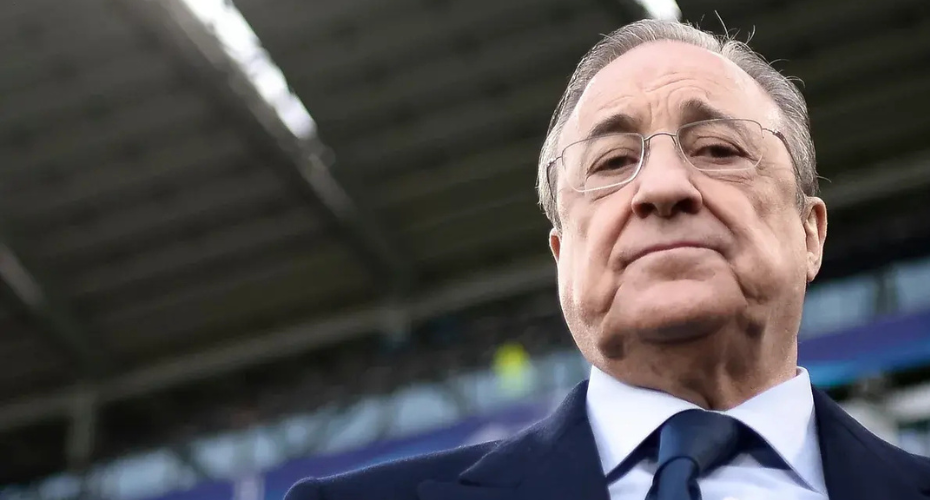It is like 2021 all over again. The European Super League saga is back, and this time Real Madrid are going on the offensive. For football fans planning European away days or following the biggest power battles in the game, this legal move could shape the future of how the sport is run.
On Wednesday, Real Madrid confirmed they are preparing legal action against UEFA. The club wants “substantial damages” for UEFA’s actions in blocking the launch of the European Super League in 2023. The next day, reports in Spanish outlet AS and the Financial Times stated that Madrid will seek €4.5 billion from UEFA, equivalent to £3.9 billion or $5.2 billion. That figure is said to represent the money Madrid believe they missed out on because the project was shut down.
According to sources close to A22, the company behind the original Super League and now pushing its successor called the Unify League, this amount includes projected revenue from matchdays, broadcast deals and commercial activity. The figure is based not on a particular year or accounting period but on the assumption the project never got off the ground.
The Athletic contacted Real Madrid for comment. A source at the club would not confirm the €4.5 billion figure, but did say the total claim would be “in the billions.” They added that Madrid would “report on this in due course.”
As for whether the claim has any chance of success, that depends on who you ask. Legal cases of this size are the Champions League knockout ties for lawyers. If it does go to court, expect world-class legal firepower on both sides. But Madrid will need to clear some tough hurdles. They must first prove that they really did lose money because of UEFA’s actions. That means showing how much they would have earned if the Super League had happened, and how that compares to what they actually earned from UEFA’s competitions.
That will not be easy. The original Super League concept lacked detail on how it would make money. No sponsor or broadcaster has ever publicly confirmed involvement. Nobody wanted to be caught on the wrong side of the fallout. Still, leaked contracts showed that the twelve founding clubs were promised between €200 million and €300 million each as “welcome payments.” Barcelona and Real Madrid were due an extra €60 million for the first two seasons. This level of preferential treatment is exactly why many fans rejected the project in the first place.
Madrid’s legal team will likely estimate additional matchday earnings based on more games played at home. A full Super League campaign could have meant 11 home fixtures instead of the usual seven under the current Champions League format. At a newly renovated Santiago Bernabeu that holds 84,000 fans, the financial boost over a decade could be significant. But when it comes to broadcast revenue or commercial value, everything else is just guesswork.
Would the ESL or Unify League really bring in more than UEFA’s Champions League, which is expected to be worth more than $5 billion annually from 2027? Would brands throw money at a breakaway league when UEFA is signing increasingly lucrative commercial deals, such as its recent upgraded partnership with its official beer sponsor?
All the projected riches Madrid are claiming will be weighed against the real income they already banked. And that is before you even get into whether UEFA actually caused the ESL’s collapse. English football fans protested. Clubs backed out. Politicians like Boris Johnson threatened to drop “legislative bombs” on the project. It might not have been UEFA’s actions that killed the Super League. It might have just been a bad idea from the start.
Some suspect the lawsuit is a tactical move. Instead of actually expecting to win €4.5 billion, the goal may be to create a big enough legal and financial headache for UEFA that they are forced to negotiate a settlement or hand over more control of their competitions. Either way, the stakes are enormous.
Madrid are not exactly short on income. They were already football’s highest-earning club before the Bernabeu redevelopment, and since the renovation was completed in 2023, they became the first club ever to report revenues of more than €1 billion. In the 2024 to 25 season, that figure rose again to €1.185 billion according to the club’s own announcement. That is an increase of €342 million in just two years. Even if Deloitte’s independent audit came up slightly lower, the numbers are eye-watering.
And UEFA has been paying well too. Real Madrid consistently go far in the Champions League. In four of the last five seasons, they have been one of the top three earners from UEFA prize money, collecting over €100 million per year. Last season’s figures are not published yet, but they are expected to have crossed that €100 million threshold again. Over the past five years, Real Madrid have taken in more than €500 million from UEFA competitions alone.
A big chunk of that came from the now-discontinued coefficient pot, which rewarded clubs for their historic performance. Between 2018 and 2024, Madrid topped the payout table every single year, collecting €215.5 million across six seasons. That coefficient system was replaced by the Value Pillar under UEFA’s new model. Madrid are not expected to have come out top under the new formula, which may be another reason for growing tension between the club and UEFA.
The background to this legal battle goes back to one of the most dramatic weekends in football history. On April 18, 2021, 12 of Europe’s biggest clubs announced they were forming the European Super League. The new midweek competition would consist of two groups of 10 teams, followed by knockout rounds. Fifteen clubs would be permanent founding members, while five more would qualify each year through their domestic leagues. The goal, according to the clubs, was to create a more financially sustainable and attractive competition. A solidarity fund of €400 million was promised for the rest of the football pyramid. JPMorgan Chase pledged $5 billion in funding.
The clubs involved were the Premier League’s so-called Big Six, alongside Real Madrid, Barcelona, Atletico Madrid, Juventus, AC Milan and Inter Milan. Bayern Munich, Borussia Dortmund and Paris Saint-Germain had also been approached but did not sign on.
The backlash was instant and furious. Fans took to the streets. Managers spoke out. National leagues, FIFA, UEFA, and even governments all condemned the plan. That same week, Madrid’s commercial court issued an injunction preventing UEFA and FIFA from punishing the clubs or players involved. But on April 20, Chelsea and Manchester City withdrew. The rest of the English clubs followed, along with the Milan clubs and Atletico Madrid. By April 21, only Real Madrid, Barcelona, and Juventus remained.
Even though the Super League collapsed, the legal battles did not. The Madrid court eventually passed the case to the Court of Justice of the European Union, which ruled in December 2023 that UEFA and FIFA’s rules were “by object” anti-competitive. UEFA pointed out that it had already made changes and would continue to reform. It also paused all punishments against the clubs involved.
At the same time, UEFA began working with the European Club Association on a joint venture known as UC3, which now oversees the commercial management of UEFA’s club competitions from 2027 to 2033. That joint venture became official in January 2025, and it has already begun selling new broadcast and sponsorship deals through a global marketing agency.
A22 and the Super League project, however, never went away. In December 2024, they unveiled a new version of the competition, now called the Unify League. It would feature 96 men’s clubs and a 32-team women’s version, divided into four divisions called Star, Gold, Blue, and Union. Games would still be played midweek, and the competition would be streamed globally, free of charge, on an ad-funded platform.
The new idea received almost no public support. Clubs, broadcasters, and fans barely reacted. Even Juventus rejoined UEFA’s fold, and Barcelona president Joan Laporta recently attended the ECA’s general assembly in Rome, where he was warmly welcomed by PSG president Nasser Al-Khelaifi and other top officials. Everyone appeared to have moved on. Everyone, that is, except A22 and Real Madrid.
In May 2024, a Madrid court again ruled in A22’s favour, finding that UEFA, La Liga, and the Spanish FA had acted illegally in blocking the Super League. An appeal against that ruling failed, and on Wednesday, Madrid announced they would sue for damages.
A22 insists it has learned from the past. The Unify League is no longer a closed shop. Qualification will be based on domestic league performance. The company says it is open to more format changes to bring it closer to UEFA’s current competitions.
Talks with UEFA have taken place this year, and Madrid claim they too have made efforts to persuade UEFA to step aside and allow someone else to run cross-border competitions. But UEFA, the ECA, and over 800 member clubs have shown no interest. At the ECA general assembly in Rome, not a single club voiced concern about the latest court ruling. Only journalists were discussing what it might mean.
Some believe the lawsuit is simply a way to pressure UEFA. If not to win €4.5 billion, then perhaps to force a settlement or a shift in power. Much like how the English Premier League evolved away from the Football Association, the Champions League may be heading in a similar direction.
Whatever happens next, fans planning their next big European away day should keep a close eye on the outcome. This is not just about money. It is about control. And the future of European football may hinge on what happens in the courts.









